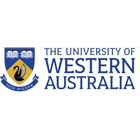Bachelor of Engineering (Hons) – Chemical Engineering
Bachelor of Engineering (Hons) – Chemical Engineering
A Chemical Engineering major equips you with the skills and knowledge to design sustainable chemical processes, equipment and products to improve the society and the environment. A world of opportunities opens for you when you become a chemical engineer. You could be working with major local employers in energy and…
Categories
COURSE DESCRIPTION
A Chemical Engineering major equips you with the skills and knowledge to design sustainable chemical processes, equipment and products to improve the society and the environment. A world of opportunities opens for you when you become a chemical engineer. You could be working with major local employers in energy and mining, or apply your knowledge and skills to the fine chemical industry, food industry, finance and consulting, renewable and alternative energy sector or government research agencies such as the CSIRO.
You’ll learn to
Utilise advanced technical chemical engineering skills in problem identification, simplification, analysis, planning, design, implementation and operation for an exciting career in Engineering.
Formulate, conduct and present research into new products, processes or chemical/physical phenomena
Create innovative engineering solutions to solve complex issues by applying critical thinking skills and your knowledge of established engineering methods
Develop a deep practical understanding of the core concepts of chemical engineering such as thermodynamics, fluids mechanics, reaction engineering, heat and mass transfer, and process design and safety. Then extend this knowledge to more specialised areas such as advanced oil and gas processing, combustion science and technologies, renewable energy and alternative fuels, mineral processing, reaction engineering and catalysis, and flow phenomena relevant to chemical processes
Apply mathematical, numerical, statistical and computational sciences that underpin engineering to design methods, equipment and products to improve the chemical processes within all industries.
Work effectively in a team, bringing leadership and accountability to successfully solve real-world problems
Why study Chemical Engineering?
You’ll make valuable connections with UWA’s industry partners including Chevron, Woodside, Lycopodium, South 32, and other members of our industry advisory panel – giving your career a head start.
You will become an industry-ready chemical engineer with broad knowledge of alternative energy sources and climate change mitigation strategies
Career options within chemical engineering are extensive and some of the highest-paid in the industry, including in petroleum, minerals processing, oil and gas, water and waste management, renewable and sustainable energy.
Career Pathways
Chemical engineer
Process engineer
Researcher
Consultant
Risk and safety manager
Production/operations engineer
REQUIREMENTS
Entry requirements may vary from country to country. Students are required to complete an international academic qualification equivalent to Australian High School (or equivalent).
English language requirements:
IELTS (academic): Overall minimum score of 6.5, no band lower than 6.0
TOEFL Internet-based TOEFL (iBT): an overall score of 82 or above with a minimum score of 22 in writing, 18 in reading, 20 in speaking and 20 in listening
Pearsons Test of English (PTE) (academic): An overall score of 64 with a minimum score of 59 in the speaking and writing sections, and no less than 54 in the other sections
EDUCATIONAL INSTITUTION
The University of Western Australia (UWA) is a proud member of the Group of Eight and is the only university in Western Australia to be ranked in the world top 100 universities (QS World University Rankings 2023).UWA’s main campus is located in Perth, Western Australia and is home to more than 23,000 students. Perth is Australia’s fourth-largest city with over two million people from a variety of cultures worldwide, a strong economy and vibrant lifestyle. Perth is one of the country’s most affordable cities, the closest major Australian city to Asia, and in the same time zone as most of Asia.

